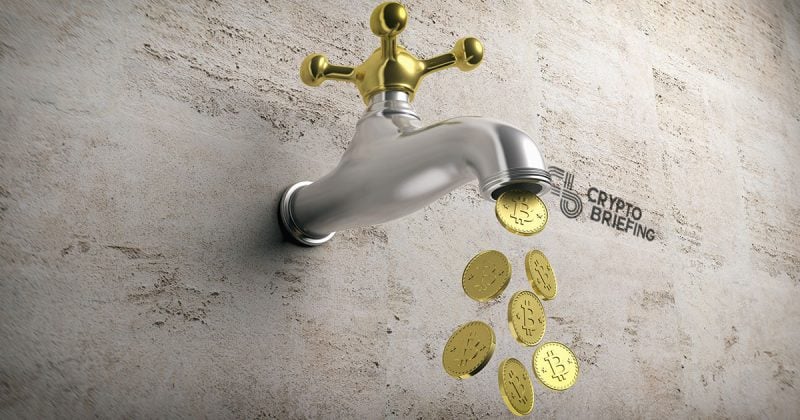
Bitcoin Faucets Are Still Open, But Is Anything Coming Out?
The pump don't work 'cause the hodlers took the handle.
Who says there’s no such thing as a free lunch? Time was when anyone could earn 5 BTC at the first-ever Bitcoin faucet. It was run by Gavin Andresen, soon-to-be-founder of the Bitcoin Foundation. If you held onto that Bitcoin, it would be worth $60,000 today – decent profits for a few minutes’ work in 2010.
Even better, there was no catch. In Andresen’s own words, he simply gave away BTC because he “wanted Bitcoin to be successful.” That’s a bit more pure than today’s faucet operators, who are largely motivated by profit. Bitcoin is worth a lot more than it was in 2010 – and so is advertising.
Faucets Slow To A Trickle
Modern faucets don’t really give Bitcoin away for free. They earn money from ad traffic, and their profits outweigh the value of the coins that they pay out. As a result, today’s faucets are saturated with advertisements, pop-ups, click-throughs, automatic redirects, and embedded malware.
On top of that, most faucets don’t let you cash out right away. This means that you need to use a faucet dozens of times before you actually receive a payout in your crypto wallet. You won’t know for sure whether a faucet is legit until you’ve actually tried.
And don’t even think of trying to automate the process – CAPTCHAs prevent that.
It gets worse: some faucets are completely fraudulent. In theory, you should be able to look up transactions in a block explorer and see if a site has been paying its users. But many faucets don’t publish their payouts, meaning that you’ll need to trust reviews to tell you which ones are legitimate. Or, you can invest your time and find out the hard way.
Others rely heavily on referral schemes. If you can persuade other people to join in, you’ll earn a little more crypto. Even if they do really pay their users, most people don’t appreciate being marketed in this way, and it’s another sign that faucet operators are taking an aggressive approach to profit.
But Are Faucets Worth Your Time?
Today’s faucets only pay a few hundred satoshis per hour, at most. One faucet user carried out a back-of-the-envelope calculation back in December 2015. After putting in three hours and using 128 faucets, he found 103 that actually worked. The payout for his entire effort was 0.0038 BTC, which was worth 15 cents at the time.
That amount is now worth $4.50, as of August 2019. That means faucets could be worthwhile if you’re holding out for Bitcoin’s price to skyrocket again. If it does, you can be the first to say “I told you so.” Don’t hold your breath, though – you can probably make more from mining, staking or other forms of passive income.
One more thing: don’t confuse faucets with testnet faucets. These are legitimate, but they only dispense testnet tokens that can be used to test blockchains and applications. You can obtain testnet tokens if you really want to, but they don’t have any monetary value.
Yes, There Is Still Free Crypto
There’s still crypto free for the taking, but almost every respectable project has distanced itself from the faucet model. Brave, for example, offers free Basic Attention Tokens (BAT) if you watch in-browser advertisements. Unlike other ad platforms, Brave carefully curates ad content to ensure that they don’t contain malware or compromise your privacy.
Coinbase Earn is another spiritual successor. The exchange is subsidizing rewards for users to learn about various cryptocurrencies, such as Stellar Lumens, DAI, EOS, and BAT. Coinbase pays you $10 in crypto for about an hour of work (and sometimes $40 more for referrals). It pays more than a faucet, though you can only do each task once.
These options are highly reputable, but the inherent centralization is a double-edged sword. You can trust Brave and Coinbase to pay you, but they also need to comply with local regulations. Depending on your location, you might not be able to cash out – in which case, you might have to resign yourself to tapping faucets after all.
